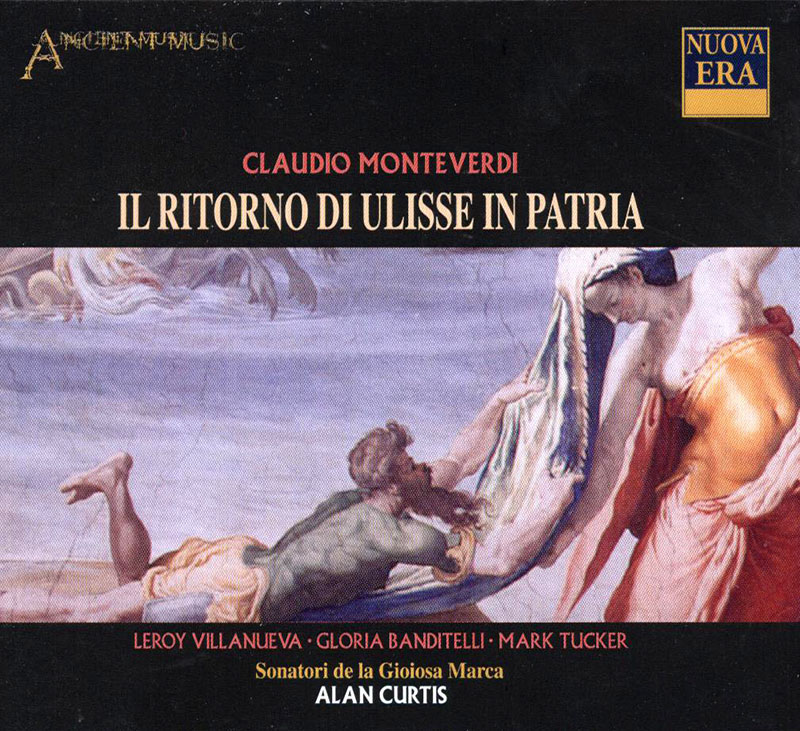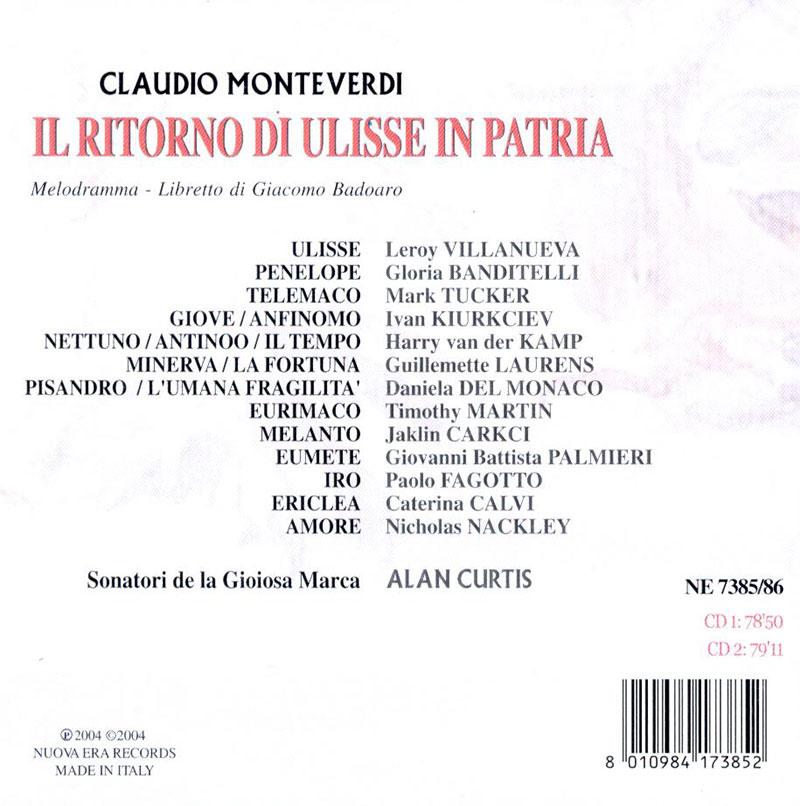Logowanie
Dziś nikt już tak genialnie nie jazzuje!
Bobby Hutcherson, Joe Sample
San Francisco
SHM-CD/SACD - NOWY FORMAT - DŻWIĘK TAK CZYSTY, JAK Z CZASU WIELKIEGO WYBUCHU!
Wayne Shorter, Freddie Hubbard, Herbie Hancock, Ron Carter, Elvin Jones
Speak no evil
UHQCD - dotknij Oryginału - MQA (Master Quality Authenticated)
Chesky! Niezmiennie perfekcyjny
Winylowy niezbędnik
ClearAudio
Double Matrix Professional - Sonic
najbardziej inteligentna i skuteczna pralka do płyt winylowych wszelkiego typu - całkowicie automatyczna
MONTEVERDI, Leroy Villanueva, Gloria Banditelli, Sonatori De La Gioiosa Marca, Alan Curtis
Il ritorno di Ulisse in Patria

- Leroy Villanueva - tenor
- Gloria Banditelli - contralto
- Sonatori De La Gioiosa Marca - orchestra
- Alan Curtis - conductor
- MONTEVERDI
I first heard Alan Curtis conduct this opera in Berkeley in 1990. This recording followed less than a year later (Nuova Era 7103/05), but now it has been reissued on two discs. The opera had been performed in Venice and Bologna in 1641, then disappeared, the only score (not an autograph) surviving in Vienna. (L’incoronazione di Poppea followed a year later.) It has always been less favored on disc than L’Orfeo or Poppea. Indeed, Curtis recorded Poppea twice before tackling this work. Curtis’s version of Ulisse is like no other except the unlamented first recording of Rudolf Ewerhart, for these are the only recordings that add nothing to the extremely spare scoring of the surviving manuscript. Both are cut, though Ewerhart’s cuts were more drastic (only Nikolaus Harnoncourt/Vienna, René Jacobs, and Gabriel Garrido are uncut). The other six versions orchestrated the score (in that sense, Jeffrey Tate’s version using Hans Werner Henze’s modernization differed only in degree), while Jacobs and Garrido even added other instrumental music of Monteverdi and his contemporaries to the production. Only Tate and Raymond Leppard used modern instruments, and only Harnoncourt/Vienna and Curtis used a treble Amore. Since the first two recordings, Ewerhart and Harnoncourt/Vienna, all the rest have been recorded during or in conjunction with staged performances. This one was live, as were Harnoncourt/Zurich and Tate, and the attendant stage noises will appeal to some more than to others. Curtis agrees with Jacobs and Garrido in dividing the work into five acts as the libretto was constructed, while Ewerhart and Harnoncourt follow the score’s three acts (Leppard and Tate used two acts in their own arrangements). Given those parameters, Curtis conducted a splendid rendition of the music as it sounded (more or less) in its first performance. Villanueva is properly heroic, Banditelli is quite moving, and among the other singers, Guillemette Laurens is a striking Minerva. Every other conductor since Ewerhart has amplified the instrumentation, some more than others. Jacobs and Garrido, the two most recent recordings, are both hugely successful at the opposite extreme to Curtis. Expanding the use of instruments, even adding additional music where instrumental sinfonie and interludes seemed to be desirable, suited their ideas of making each production a truly theatrical event. Curtis would demur that he accomplished the same end. There is a minor problem with the reissue. Six minutes are omitted at the beginning of act IV, the first half of a 12-minute track on the original issue. It’s an ensemble scene preceding Pisandro’s “Generosa regina,” no great loss but not acknowledged in the libretto or the notes. Only this cut made a two-disc reissue possible, so I mention it only for the record. After a nod of appreciation for Harnoncourt/Vienna, which many will fondly remember, I recommend this bargain set as a second purchase after either Jacobs or Garrido. J. F. Weber, FANFARE


































